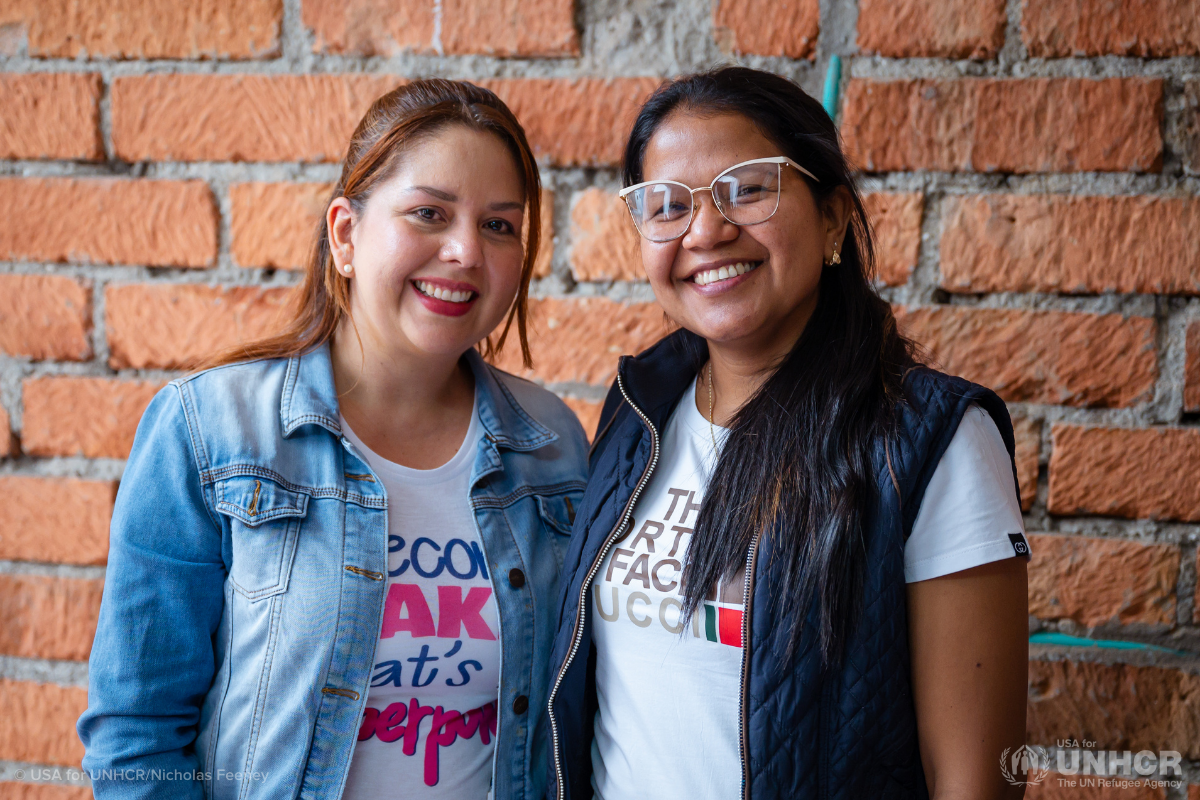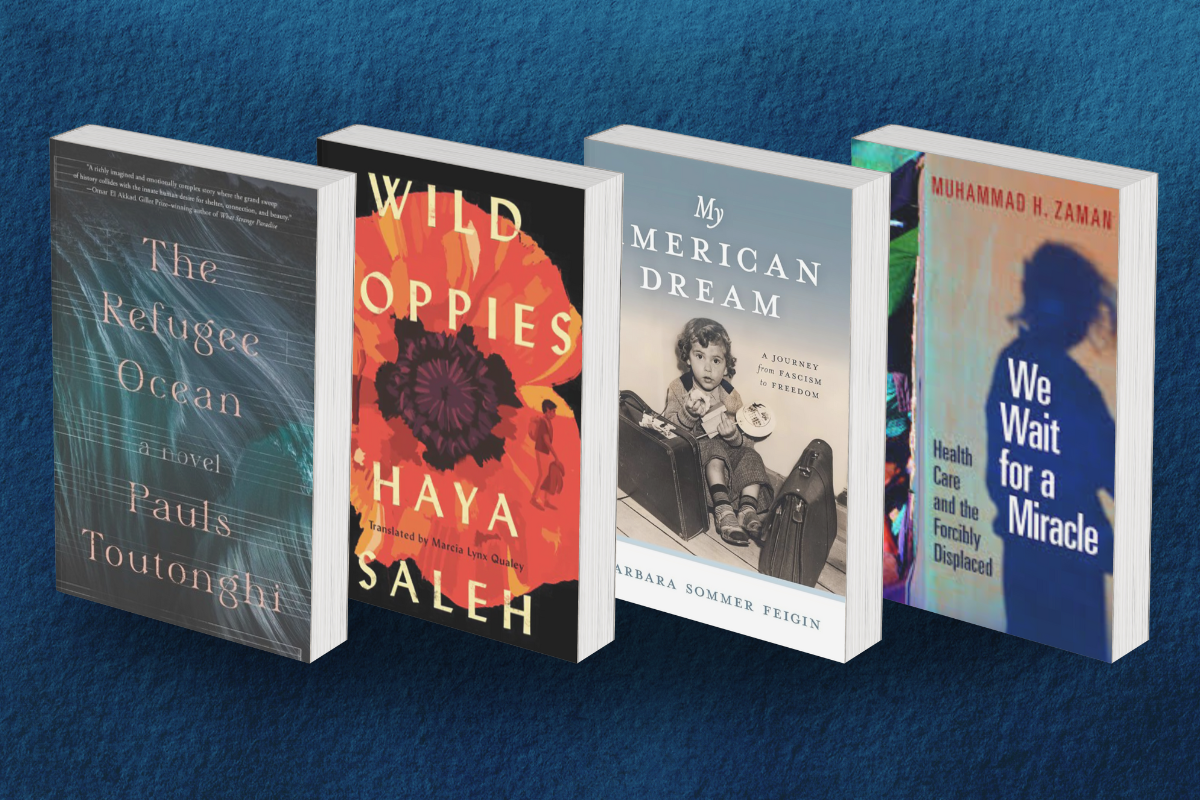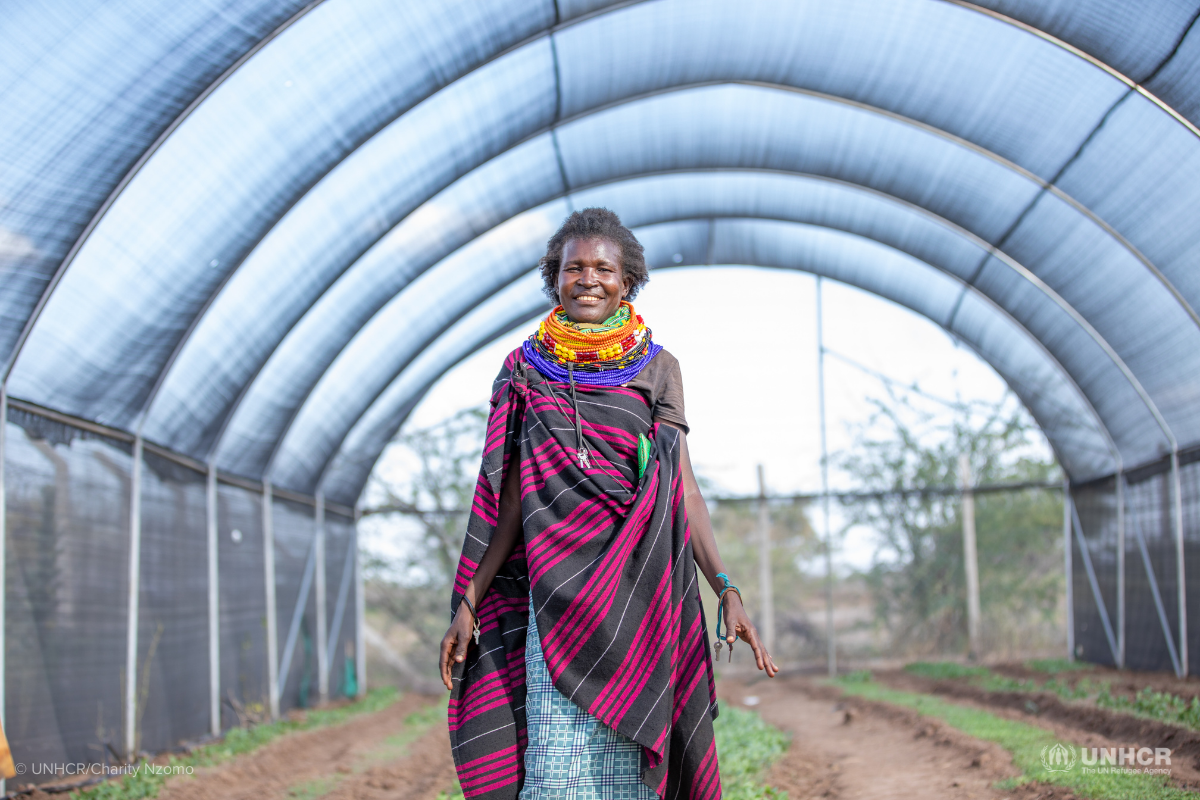From restaurants to rehabilitation: three ways food is fueling displaced people
Food has the power to nourish people’s bodies, feed their souls and create connections between people. Whether it’s feeding yourself, your family or your community, food plays a vital role in everyday life for refugees and non-refugees alike. Here are three ways food is changing the lives of displaced people in countries like South Sudan, Ethiopia, Myanmar, Colombia and the United States.
Angelina’s restaurant in South Sudan

Opportunities for internally displaced people (IDPs) in Bentiu, South Sudan are scarce. Most people have left behind their belongings and their ways of life, and starting over is not easy. But in the quiet of one IDP site, there is a bustling business: Angelina’s restaurant, Nyajok.
Like most of her neighbors, Angelina lost everything when she fled from her village of Thepchak in October 2021. She used to farm and keep livestock like goats and cattle, but when the floods came, her farmland was submerged and her livestock died.
Angelina has nine children to care for, including three sets of twins, and her husband is in Khartoum, leaving her as the sole provider for her children. Though they often used to go hungry, Angelina’s perseverance and entrepreneurial skills have made it possible for her to feed her children once again.
In Bentiu, Angelina received a cash grant and a business start-up kit from UNHCR, the UN Refugee Agency. With the cash, she bought kitchen utensils, chairs, tables and basic food items and opened up her own restaurant. Soon her food became the talk of the IDP site. She now serves an average of 30 customers daily with traditional dishes such as janjaro, kop, mad fish sauce and goat meat.

“When regular customers get frustrated because all the food has finished early, that is a sign of their satisfaction with my cooking and an indication of my success,” Angelina says proudly.
The success of Angelina’s restaurant is not only helping her family, but it is also having a positive impact on her community. She employs three women in the restaurant and buys goods, such as fish and charcoal, from local community vendors.
“I am so happy. Before, I could not feed my children, I was always worrying, but now I no longer worry. I know that every morning and evening there is something for my children to eat.”
Farming and feeding in Ethiopia
Ethiopia hosts one of the largest refugee populations in Africa. But the after-effects of the war in Ukraine — such as global inflation and the rise of food prices — have left many refugees in Ethiopia in an increasingly dire situation, without enough food to eat and little options to improve life for themselves and their families. At the same time, Ethiopia is facing the longest and most severe drought on record, compounding an already challenging situation and threatening lives and livelihoods. But UNHCR is helping combat the effects of drought, inflation and conflict with specialized farming and feeding programs for refugees.

The Kobe refugee farm is an agricultural cooperative in Ethiopia that gives refugees and host community members the opportunity to grow, harvest and sell their own crops. Fariya Abdi Hassan, a beneficiary of the cooperative, harvests wheat, which she then proudly uses to feed her six children.

Another initiative in Ethiopia are infant and young child feeding classes at the Bokolmayo Nutrition Center. In these classes, refugee mothers learn the importance of cooking nutrient-dense meals for their young children. During cooking workshops, women learn cooking techniques and children are able to sample delicious and nutrient-dense dishes.
Putting the LIVE in livelihood in Myanmar, the United States and Colombia

Meikswe Myanmar is an inclusive, community-based program in Myanmar that uses livelihood training to support IDPs, host community members and people affected by HIV/AIDS. Participants in the program learn to produce organic animal feed for local farmers. On a larger scale, the animal feed from the program helps raise livestock. On a personal level, the program helps workers earn an income that they can use to rebuild their lives.

Eat Offbeat is a New York-based restaurant that employs resettled refugees and immigrants. The chefs, originally from countries and cultures around the world, like Syria, Senegal, Afghanistan and Venezuela, bring their unique culinary traditions and dishes to tables throughout New York City. Chef Lebjulet is from Venezuela; pictured above she can be seen bringing flavors from her home country to the Queens Night Market.

Bello Oriente is a neighborhood on the outskirts of Medellín, Colombia that is home to a mix of refugees, migrants, internally displaced people, victims of armed conflict and host community members. Environmental initiatives in Bello Oriente are helping older adults, like Ana, integrate into their new communities, find meaningful work and take care of their mental health.
Through a gardening program, Ana is able to share with others the knowledge and skills she acquired before being forced to flee. For Ana, gardening is more than just a hobby. "The garden means a lot to me. Because with the garden, I eat, I feed several friends, my family,” she explains. “Rather, the garden is everything to me. For me, the earth is what gives you life.”
How to help…
Support food and livelihood programs around the world by becoming USA for UNHCR’s newest monthly donor. Your compassionate gift can help teach parents and children about healthy eating, empower entrepreneurs with grants to start their own restaurants and provide livelihood training and opportunities for people who have been forced to flee their homes.


